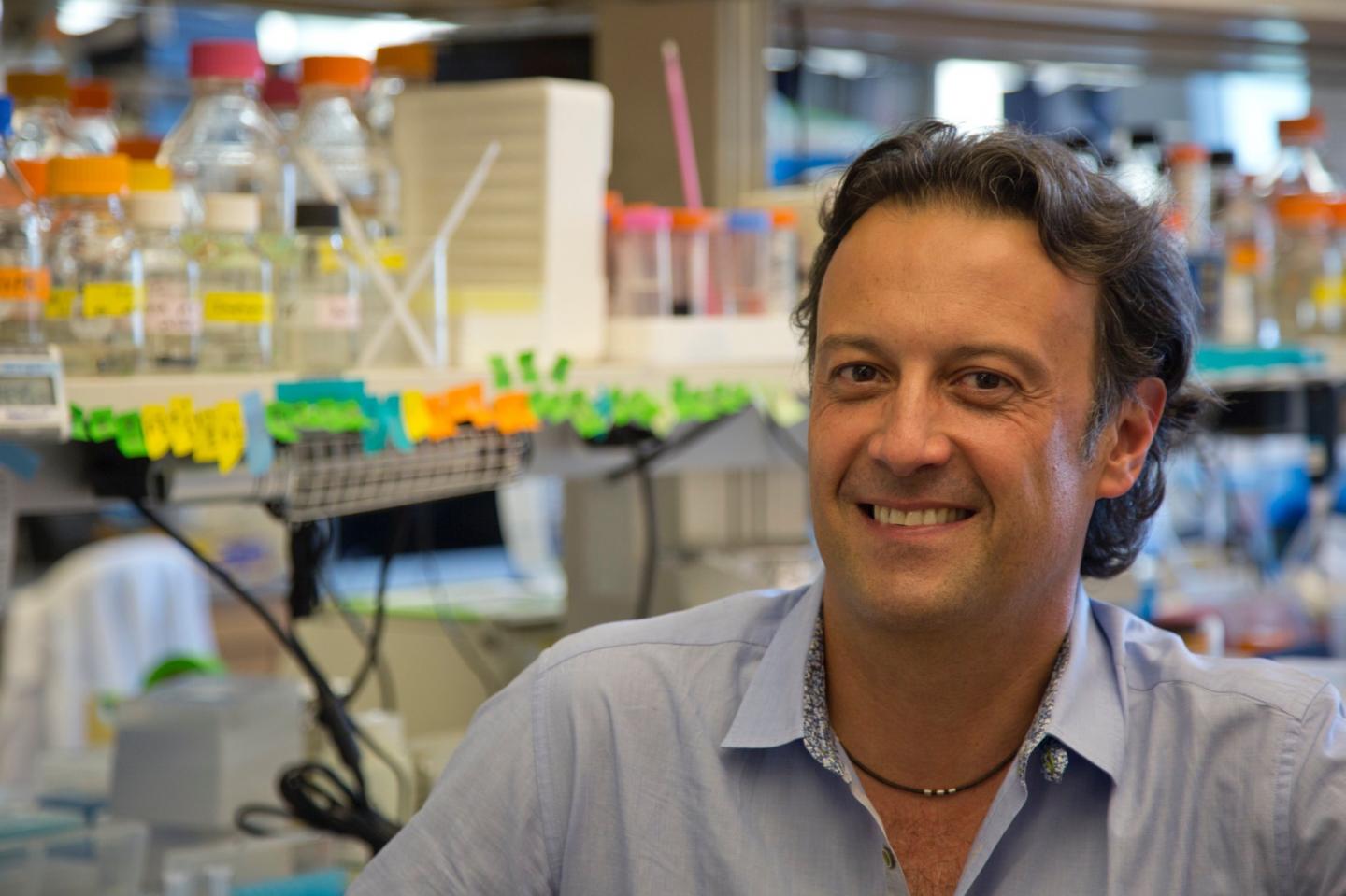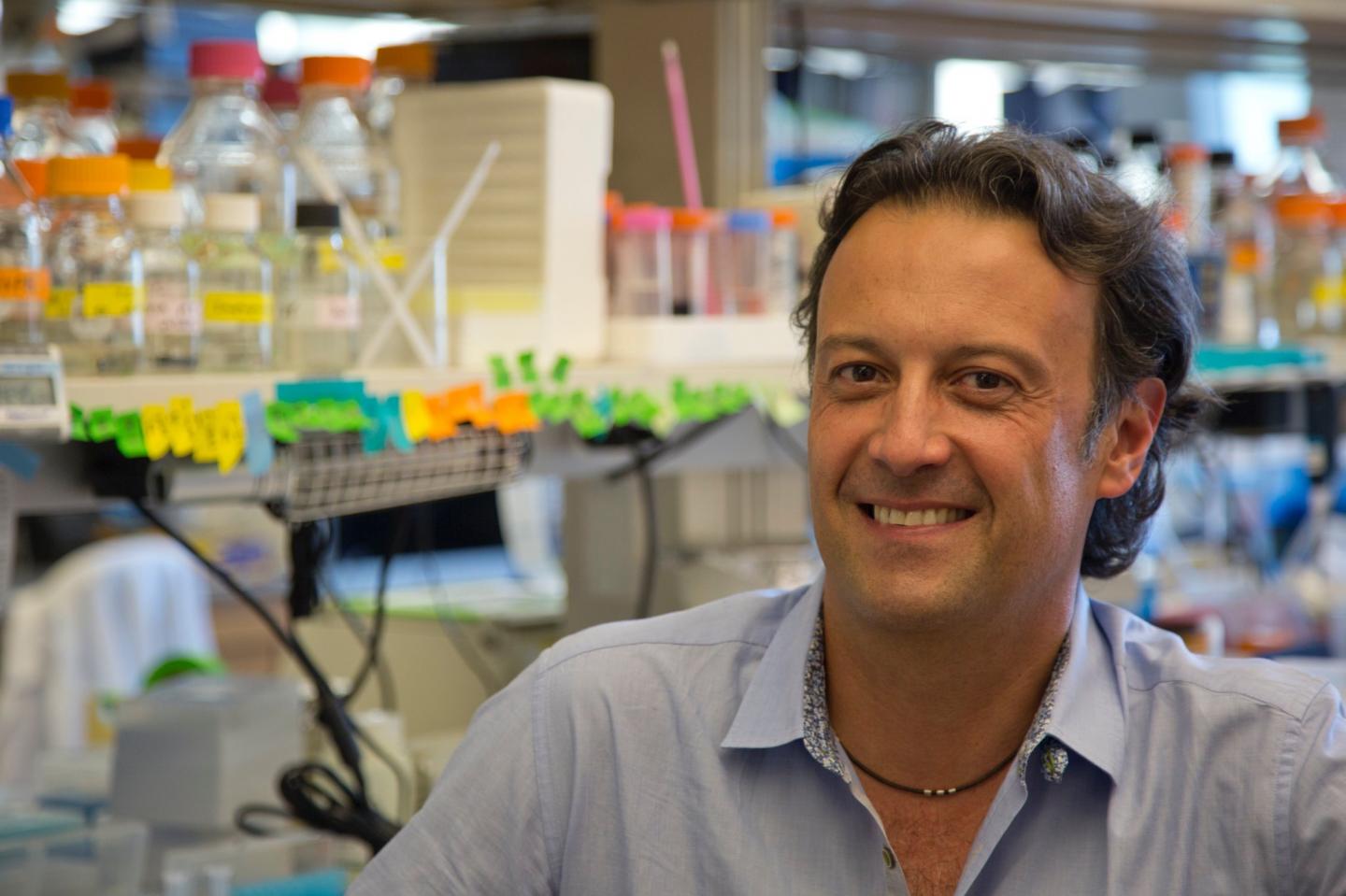
Credit: Ludwig Cancer Research
MARCH 2, 2017, New York — A team of researchers led by Alex Toker of the Ludwig Center at Harvard has discovered a metabolic weakness in triple-negative breast cancer (TNBC) cells that may be exploited to quell their resistance to chemotherapy.
TNBC is notoriously aggressive and is difficult to treat because its cells lack the targetable receptors found in other forms of breast cancer. Only about 30 percent of TNBC patients achieve a pathologic complete response, or a complete eradication of active cancer cells, following chemotherapy. Those who do frequently relapse shortly afterward.
"Trying to understand the mechanisms that contribute to cancer's resistance to therapy is a major mission here at the Ludwig Center at Harvard," said Alex Toker.
In the new study, published online in the journal Cancer Discovery, Toker, an investigator at the Ludwig Center at Harvard Medical School, and his team including lead author Kristin Brown, formerly of the Ludwig Center at Harvard and now at Peter MacCallum Cancer Center in Melbourne, Australia, outline a newly discovered chink in the armor of TNBC cells. This "metabolic vulnerability" can be used to circumvent chemotherapy resistance.
The scientists demonstrated that chemotherapy effectively reprograms TNBC cells to ramp up production of the pyrimidine nucloetides, key building blocks of DNA. This heightens the cells' DNA repair abilities and ultimately results in greater resistance to chemotherapies that work by damaging the DNA of rapidly dividing cells.
"This actually makes sense if you think about it, because if a tumor cell is going to repair DNA and therefore evade the death-inducing effects of chemotherapy, the only way they can really do that is by rebuilding DNA, and the only way to rebuild DNA is to make more nucleotides," Toker said.
Toker and his team reasoned that blocking the pyrimidine synthesis pathway in TNBC cells would hinder their DNA repair abilities and make them more susceptible to the DNA-damaging effects of chemotherapy. To test this hypothesis, the team exposed TNBC cells in the lab to a drug combination of doxorubicin, a commonly used chemotherapy agent, and leflunomide, a known inhibitor of dihydroorotate dehydrogenase (DHODH), a crucial enzyme in the biochemical reactions that generate pyrimidines.
"One of the major reasons we chose leflunomide is because we wanted a rapid path to clinical impact, and leflunomide is already FDA-approved and widely used to treat autoimmune diseases such as rheumatoid arthritis," Toker said.
Toker's group found that leflunomide blocked the increase of pyrimidine nucleotides in TNBC cells, thus impairing their ability to repair the DNA damage dealt by doxorubicin, and resulting in increased cancer cell death.
The scientists then repeated the experiment in mice that had been transplanted with human TNBC cells. "We found that treating the mice with doxorubicin or leflunomide alone only slowed tumor growth, but that a combination therapy involving both drugs resulted in significant tumor regression," Toker said.
Importantly, the combination therapy in mice did not cause any weight loss or gain in the animals – an indication that the drug regimen might be reasonably well-tolerated in humans.
"One of the things we would like to do is develop clinical trials in patients with this combination strategy, whether it be with leflunomide or some other drugs that are coming online that might have better pharmacological properties in patients," Toker said.
In the meantime, Toker said his group is moving forward with plans to investigate the molecular basis of increased pyrimidine biosynthesis in TNBC cells.
"There is something about this pathway in triple negative breast cancer that is especially important," Toker said. "We don't know what the genetic basis underlying it is, but it's something we would really like to find out."
###
Funding and support for this research was provided by the Virginia and DK Ludwig Fund for Cancer Research.
Alex Toker, an investigator at the Ludwig Center at Harvard, is also a professor in the Department of Pathology at the Beth Israel Deaconess Medical Center and Harvard Medical School and Chief of the Division of Signal Transduction in the Departments of Medicine, Pathology and Cancer Center.
About Ludwig Cancer Research
Ludwig Cancer Research is an international collaborative network of acclaimed scientists that has pioneered cancer research and landmark discovery for more than 40 years. Ludwig combines basic science with the ability to translate its discoveries and conduct clinical trials to accelerate the development of new cancer diagnostics and therapies. Since 1971, Ludwig has invested $2.7 billion in life-changing science through the not-for-profit Ludwig Institute for Cancer Research and the six U.S.-based Ludwig Centers. To learn more, visit http://www.ludwigcancerresearch.org.
For further information please contact Rachel Steinhardt, [email protected] or +1-212-450-1582.
Media Contact
Rachel Steinhardt
[email protected]
212-450-1582
@Ludwig_Cancer
http://www.licr.org
############
Story Source: Materials provided by Scienmag





